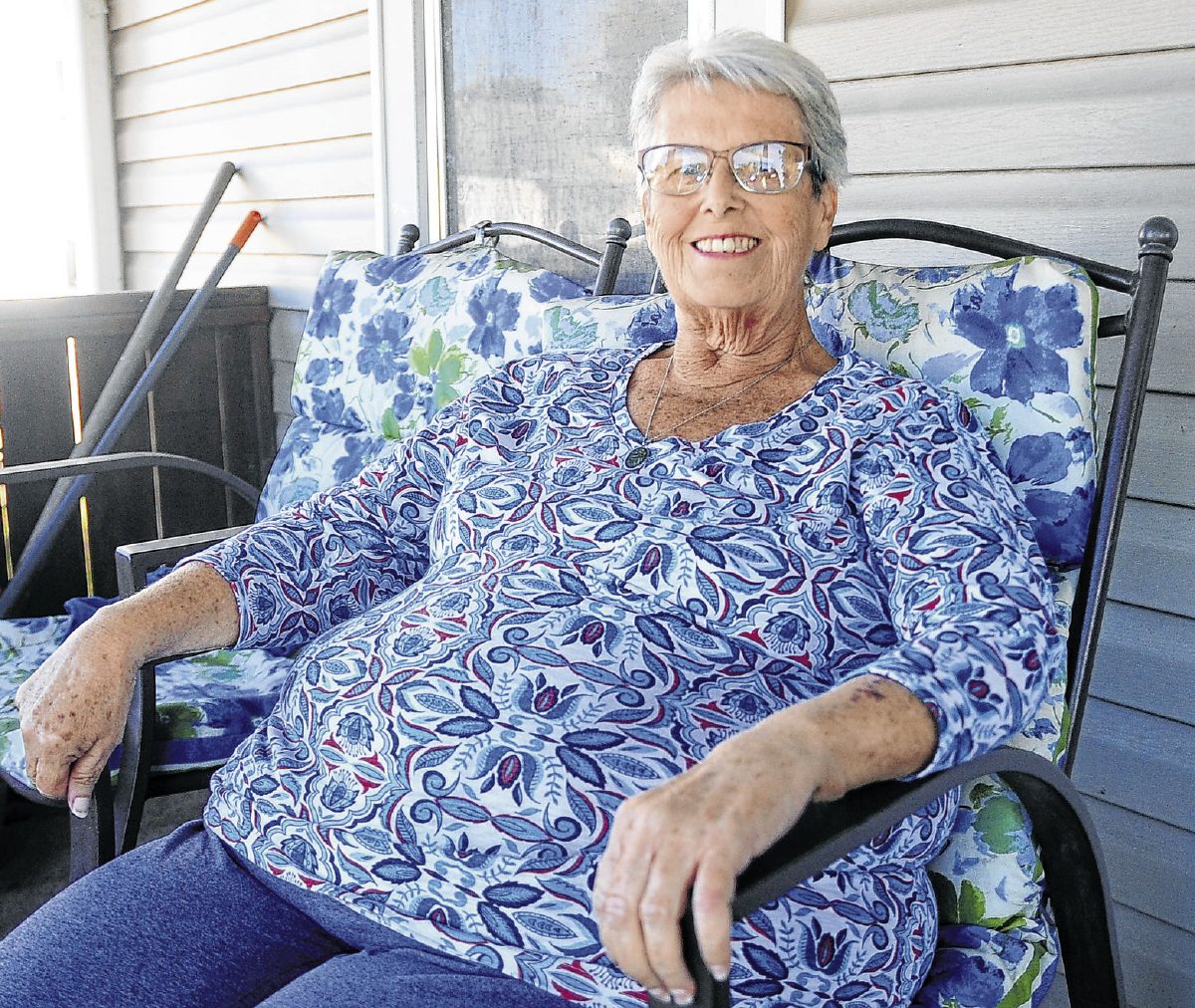
While getting ready to go on vacation to Florida in June 2017, Carolyn Ketcham wasn’t feeling all that well.
She was extremely nauseous during the two weeks prior to leaving and wasn’t eating much.
"Nothing tasted good, nothing looked good," the 60-year-old Seymour resident said.
So she decided to go to the doctor before heading south to see if she had some kind of infection that was making her sick.
[sc:text-divider text-divider-title=”Story continues below gallery” ]
Her doctor ordered routine urine and blood tests, but the results were alarming and indicated something different.
"It came back my liver enzymes were too high," she said. "By my blood results, they were pretty sure I might have some type of liver cancer."
Without knowing for sure what was wrong, Ketcham left for Florida the very next day.
"I thought I might as well go and enjoy this trip," she said.
And she did, putting what she and her doctors suspected out of her mind.
"I didn’t want to sit and dwell on it," she said.
While in Florida, her skin and eyes started to turn yellow, a condition called jaundice, which is another symptom of having a high liver enzyme count. Other symptoms include intensely itchy skin and light-colored or white stool.
The week she got back from vacation, she had a biopsy done on her liver. The sample was sent to the Mayo Clinic for confirmation, and on June 15, 2017, Ketcham received an official diagnosis, cholangiocarcinoma, a rare and aggressive cancer of the bile duct in the liver. Fewer than 20,000 cases are diagnosed annually in the United States.
Because of the tumor’s location, surgery was not an option, Ketcham said.
So she began chemotherapy treatment in August at the Don and Dana Myers Cancer Center at Schneck Medical Center in Seymour. She went once a week until December.
She also had to have a biliary stent placed in the bile duct in her liver to help it filter toxins from the blood coming from the digestive tract.
But it got to the point where doctors thought she needed some more advanced treatment, so she went to Indiana University Health in Indianapolis to meet with Dr. Matthew Jones, a radiologist.
"He did a treatment. It’s called a chemo bead therapy," she said. "They go up with a catheter and shoot chemo beads right inside the tumor, which was the size of a softball."
That treatment continued every three months throughout 2018, and the tumor shrunk down to the size of a pea. But that was all they could do, she said.
Doctors debated on the next steps, and Ketcham hit a major roadblock this year when her insurance company refused to pay for treatment.
"They didn’t want to pay because it wasn’t FDA approved," she said.
After going more than a month without treatment, the cancer had started growing again.
"It was spreading," she said.
Finally, her insurance agreed to pay for the treatment until February 2020. Now, she goes to the cancer center every other week and receives two different types of chemotherapy. She leaves with a chemo bag hooked to her port that continues to deliver the medication for 46 hours.
She feels lucky the treatment hasn’t made her sick.
"I wouldn’t know how to handle being sick all the time," she said.
Because of her illness, Ketcham had to retire from her job in housekeeping at Schneck Medical Center in December 2017. She had worked at the hospital for 15 years.
"It was hard," she said of retiring. "I don’t miss the work, but I miss the people."
Now, she volunteers in the linen room at Schneck.
"I get to be with all my friends," she said.
The support of her family, including her husband, Rick, three daughters, Katrina, Amanda and Kelli, and her grandchildren, has played a major role in her fight with cancer, but sometimes, it’s more difficult for them to handle, she said.
"I think he’s still kind of a little in denial," she said of her husband. "He knows, but he doesn’t accept it that well."
Recently, her family and friends organized a fundraiser for her at Harmony Park that raised around $3,400.
"I couldn’t believe it. So many people showed up," she said. "This is such a good community to live in."
As far as cancers go, the prognosis for bile duct liver cancer isn’t good.
"Normally, since it’s rare, they only give you like a year to live," she said.
But Ketcham continues to beat the odds. In December, it will be two and a half years since her diagnosis.
During that time, she has maintained a positive attitude.
"It is what it is, and you can’t change it," she said. "You have to accept it and keep going."
